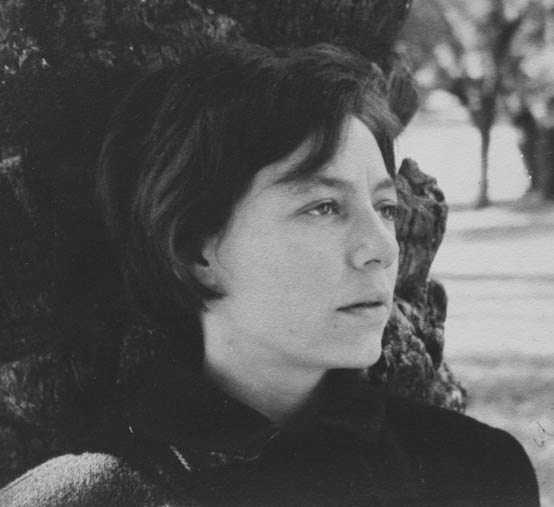
Alejandra Pizarnik photographed by Sara Facio in Buenos Aires. Image: Wikimedia commons.
Translated from the Spanish by Yvette Siegert
Your Voice
Ambushed in my writing
you are singing in my poem.
Captive of your sweet voice
engraved in my memory.
Bird intent on its flight.
Air branded by absence.
Clock that keeps time with me
so I never wake up.
Night Singer
for Olga Orozco
Joe, macht die Musik von damals Nacht…
She who died of her blue dress is singing. Her song is suffused with death and she sings to the sun of her drunkenness. Inside her song there is a blue dress, a white horse, a green heart tattooed with echoes of her own dead heart. Exposed to all that is lost, she sings with a stray girl who is also herself, her amulet. And in spite of the green mist on her lips and the grey cold in her eyes, her voice breaks down the distance gaping between thirst and the hand that reaches for water. She is singing.
Fragments for Subduing the Silence
I.
The powers of language are the solitary ladies who sing, desolate, with this voice of mine that I hear from a distance. And far away, in the black sand, lies a girl heavy with ancestral music. Where is death itself? I have wanted clarity in light of my lack of light. Branches die in the memory. The girl lying in the sand nestles into me with her wolf mask. The one she couldn’t stand anymore and that begged for flames and that we set on fire.
II.
When the roof tiles blow away from the house of language, and words no longer keep—that is when I speak.
The ladies in red have lost themselves in their masks. Though they will return to sob among the flowers.
Death is no mute. I hear the song of the mourners sealing the clefts of silence. I listen and the sweetness of your crying brings life to my grey silence.
III.
Death has restored to silence its own bewitching charm. And I will not say my poem and I will say it. Even if (here, now) the poem has no feeling, no future.







